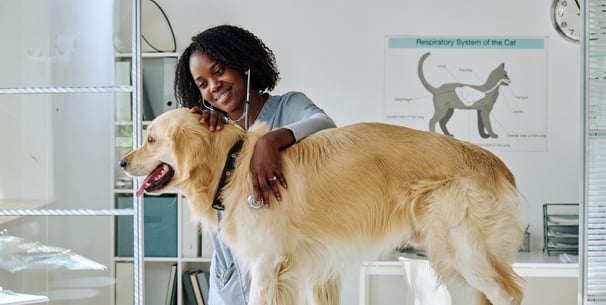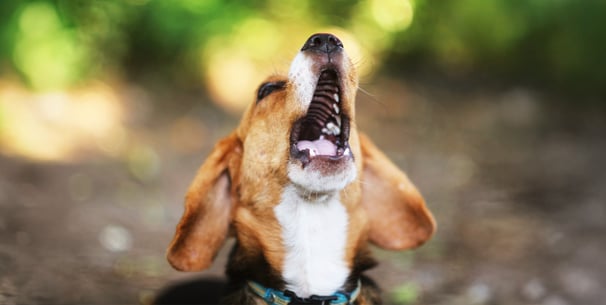When Do Labrador Retrievers Stop Growing? Puppy Growth Chart Insights
Index:



Introduction
If you're the proud parent of a Labrador puppy, you've likely marvelled at how quickly your furry friend seems to grow.
One day they're a tiny ball of fluff, and the next, they're knocking over your coffee table with their wagging tail!
But when exactly do Labs stop growing, and what can you expect during their journey to adulthood?
Let's dive into the fascinating world of Labrador Retriever growth and uncover some key insights to help you navigate your pup's development.
Understanding Labrador Retriever growth patterns
Labrador Retrievers are renowned for their friendly nature, intelligence, and versatility, making them one of the most popular dog breeds worldwide.
As a large breed, Labs have a unique growth rate that differs from smaller dogs.
It's essential to understand these patterns to ensure your pup develops healthily and reaches their full potential.



The Labrador Retriever growth chart: What to expect
To give you a clear picture of your Lab puppy's growth, let's break down their development stages using a growth chart:
Remember, these figures are averages, and individual dogs may vary. Factors like genetics, diet, and exercise can all influence your Lab's growth.
The big question - when do Labradors stop growing?
Now, let's address the burning question: "At what age does a Labrador stop growing?"
The answer isn't as straightforward as you might think!
Labradors typically reach their full height by around 12 months of age. However, they may continue to fill out and gain muscle mass for several months after that.
Most Labs are fully grown by their first birthday, but some may continue to develop until they're about 18 months old.
It's important to note that while your Lab may stop growing upwards, they might still experience changes in weight and muscle tone well into adulthood.
This is why proper nutrition and exercise remain crucial throughout their life.
Factors influencing Labrador growth
Several factors can affect how quickly your Lab grows and when they reach their full size:
Genetics: Your pup's parents play a significant role in determining their ultimate size.
Nutrition: A balanced diet is essential for healthy growth. Our guide on grain-free puppy food can help you make informed choices about your Lab's diet.
Exercise: Regular, appropriate exercise helps build strong muscles and bones.
Health: Certain medical conditions can impact growth rates.
Neutering/Spaying: The timing of these procedures can affect growth, particularly in male dogs.



Monitoring your Labrador's growth
Keeping track of your Lab's growth is an important part of responsible dog ownership. Here are some tips to help you monitor your pup's development:
Regularly weigh your dog and measure their height at the shoulder.
Take photos of your Lab standing next to a fixed object to visually track their growth.
Keep a growth journal to note any significant changes or milestones.
If you're concerned about your Lab's growth rate, don't hesitate to consult with your veterinarian. They can provide personalised advice and ensure your pup is on the right track.
Common growth-related concerns for Labrador owners
As your Lab grows, you might encounter some challenges. Here are a few common concerns and how to address them:
Rapid growth and joint health
Labrador Retrievers are prone to joint issues like hip and elbow dysplasia. Rapid growth during puppyhood can exacerbate these problems. To support healthy joint development:
Provide a balanced diet appropriate for large-breed puppies.
Avoid overfeeding, as excess weight puts strain on developing joints.
Engage in low-impact exercises like swimming.
Weight management
Labradors are renowned for their love of food, making them prone to weight gain.
Maintaining a healthy weight is crucial for their overall health and longevity.
Our comprehensive guide to pet weight management offers valuable tips to keep your Lab in top shape.
Growth spurts and behaviour changes
During growth spurts, your Lab may experience temporary clumsiness or behaviour changes.
Be patient and provide extra training and socialisation during these periods. Our article on puppy training can help you navigate these challenges.
Beyond physical growth: Mental development
While we often focus on physical growth, it's equally important to nurture your Lab's mental development. Labrador Retrievers are intelligent dogs that thrive on mental stimulation. Here are some ways to support your pup's cognitive growth:
Engage in regular training sessions
Provide puzzle toys and interactive games
Expose them to new experiences and environments
Consider activities like agility or scent work
Remember, a mentally stimulated Lab is a happy and well-behaved companion!



The importance of regular vet check-ups
Regular veterinary check-ups are crucial during your Lab's growth period. Your vet can:
Monitor your pup's growth rate and overall health
Provide guidance on nutrition and exercise
Address any concerns about developmental issues
Administer necessary vaccinations and preventive care
Don't skip these important appointments – they're key to ensuring your Lab grows into a healthy adult dog.
Labrador Retriever growth: Myths vs. facts
Let's debunk some common myths about Labrador growth:
Myth: You can predict a Lab's adult size by looking at their paw size.
Fact: While paw size can give a general indication, it's not a reliable predictor of adult size.
Myth: Labs reach their full size by 6 months.
Fact: Most Labs are fully grown by their first birthday, but some may continue to fill out until 18 months.
Myth: Feeding more will make your Lab grow bigger.
Fact: Overfeeding can lead to obesity and health issues. Stick to recommended portions for optimal growth.
Conclusion
Watching your Labrador puppy grow into a majestic adult dog is one of the joys of pet ownership. By understanding their growth patterns and providing proper care, you can ensure your Lab develops into a healthy companion whom you can enjoy for years to come.
Remember, every dog is unique, and your Lab may not follow the growth chart exactly.
What's most important is that they're healthy, active, and loved. Enjoy every moment of your pup's growth journey – it goes by faster than you think!
Curious about how your Lab's growth compares to other breeds? Check out our Cockapoo growth guide for an interesting comparison. And don't forget – as your Lab grows, their healthcare needs may change.
Consider getting a quote for pet insurance to ensure you're prepared for whatever your growing pup might need.
For more insights into Labrador health and care, the Labrador Retriever Club also offers valuable resources for breed enthusiasts.
Waggel Pet Insurance
Need more help? You're in luck if you're a Waggel Pet Insurance member. Along with our excellent coverage, we offer access to a 24/7 online vet to answer all your sticky questions, especially if you need grooming assistance.
Not a member? Why not get a quote now and cover your furry friend for a range of illnesses, all while enjoying our amazing perks and rewards.
Want more like this?
Get updates from us with helpful info, advice, answers to frequently asked questions and much more.
Index:
- Introduction
- Understanding Labrador Retriever growth patterns
- The Labrador Retriever growth chart: What to expect
- The big question - when do Labradors stop growing?
- Factors influencing Labrador growth
- Monitoring your Labrador's growth
- Common growth-related concerns for Labrador owners
- The importance of regular vet check-ups
- Labrador Retriever growth: Myths vs. facts
- Conclusion
Related posts:
Get your quote
Along with our excellent coverage, we offer access to a 24/7 online vet to answer all your sticky questions.





